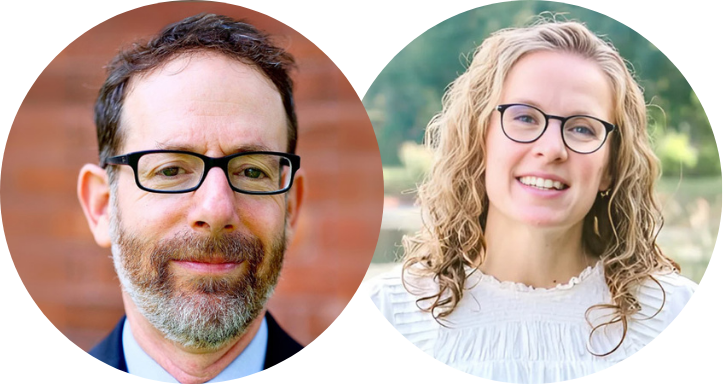NYSAP: Key Differences Between Juvenile Competency and Adult Competency Evaluations
Presented by: Ivan Kruh, PhD and Christina L. Riggs Romaine, PhD

This on-demand professional training program on Key Differences Between Juvenile Competency and Adult Competency Evaluations is presented by Ivan Kruh, PhD and Christina R. Riggs Romaine, PhD in partnership with The National Youth Screening & Assessment Partners (NYSAP).
In recent years, many U.S. jurisdictions have enacted statutory guidance around the conducting of competency evaluations for juvenile court cases. Evaluators with a history of conducting competency evaluations in criminal court cases may be required, recruited, or asked to assist with competency evaluations of juveniles. However, there are critical differences between these two tasks.
This program reviews the types of questions, data, and analyses uniquely necessary when conducting juvenile competency evaluations as opposed to competency evaluations of adults. Grisso’s (1986) Five Question Model for conducting competency evaluations is used to structure the discussion. Within each question, participants are introduced to the ways that differences between adolescents and adults, as well as the unique procedures of the juvenile justice context, impact what must be considered.
Upon completion of this training, participants will be able to:
Key topics covered in this training include:
Statutory Guidance and Emerging Practices
-Recent enactments across U.S. jurisdictions
-Increasing role of evaluators from adult criminal contexts in juvenile cases
Key Differences Between Juvenile and Adult Competency Evaluations
-Distinctive questions to be addressed
-Unique data sources and analyses required
Framework: Grisso’s Five Question Model (1986)
-Functional
-Causal
-Contextual
-Conclusory
-Remediation
Application to Juvenile Contexts
-Developmental differences between adolescents and adults
Unique procedures of the juvenile justice system
Impact of these factors within each of Grisso’s five questions

The National Youth Screening & Assessment Partners (NYSAP) is a technical assistance and research group dedicated to helping juvenile justice and related programs nationwide. Since 2000, NYSAP has assisted juvenile justice systems to make decisions about adolescents that are consistent with youths’ health and positive development and with the community’s interests by helping systems use reliable, evidence-based methods for screening and assessment. We provide training, technical assistance, and quality implementation services to agencies and programs in the areas of risk screening and risk-needs assessment, behavioral health screening, and competence to stand trial evaluations.
NYSAP professionals have played a key role for 25 years in research on juveniles’ competence to stand trial and in developing juvenile competence standards for forensic clinical practice, law, and policy. In response to the growing demand for juvenile competence evaluations nationally, we provide consultation to assist agencies in developing or refining their juvenile competence service delivery system, as well as creating and conducting quality assurance procedures. We train clinicians and juvenile justice stakeholders (e.g., judges, attorneys, and community partners) in practice standards for conducting high-quality juvenile competence evaluations.
Palo Alto University, Continuing & Professional Studies (CONCEPT) is approved by, recognized by, or maintains sponsorship provider status with the following boards and agencies. We maintain responsibility for all content in our CE/CPD programs. For more information, visit here.
American Psychological Association (APA): Approved sponsor of continuing education for psychologists.
Association of Social Work Boards (ASWB): Approved continuing education provider (ACE program, Provider #1480), 11/22/2023–11/22/2026.
Canadian Psychological Association (CPA): Approved to sponsor continuing education for psychologists.
National Board for Certified Counselors (NBCC): Approved Continuing Education Provider (ACEP No. 7190).
Palo Alto University, Continuing and Professional Studies (CONCEPT) is approved by the American Psychological Association to sponsor continuing education for psychologists. Palo Alto University, Continuing and Professional Studies (CONCEPT) maintains responsibility for this program and its content. Palo Alto University, Continuing and Professional Studies (CONCEPT), is approved by the Canadian Psychological Association to offer continuing education for psychologists. Palo Alto University, Continuing and Professional Studies (CONCEPT), SW CPE is recognized by the New York State Education Department’s State Board for Social Work as an approved provider of continuing education for licensed social workers #SW-0356 and the New York State Education Department’s State Board for Mental Health Practitioners as an approved provider of continuing education for licensed mental health counselors. #MHC-0073. Palo Alto University, Continuing and Professional Studies (CONCEPT) has been approved by NBCC as an Approved Continuing Education Provider, ACEP No. 6811. Programs that do not qualify for NBCC credit are clearly identified. CONCEPT Professional Training, #1480, is approved to offer social work continuing education by the Association of Social Work Boards (ASWB) Approved Continuing Education (ACE) program. Organizations, not individual courses, are approved as ACE providers. State and provincial regulatory boards have the final authority to determine whether an individual course may be accepted for continuing education credit. CONCEPT Professional Training maintains responsibility for this course. ACE provider approval period: 11/22/23-11/22/26. Social workers completing this course receive (clinical or social work ethics) continuing education credits.